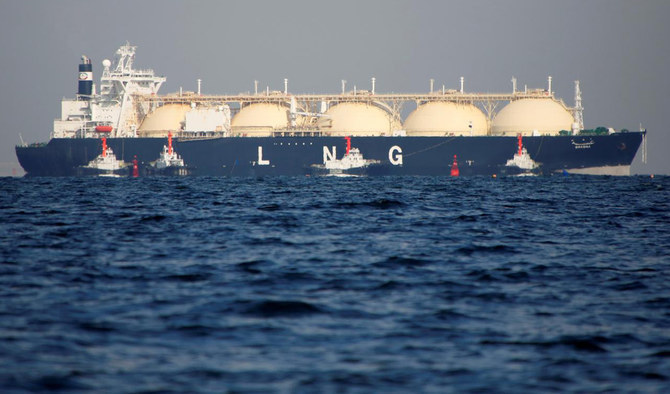ISLAMABAD: Gwadar Gas Port Limited (GGPL) is awaiting approval to get a provisional construction license from the Oil and Gas Regulatory Authority (OGRA) to import a ‘virtual’ LNG pipeline to provide gas at half price to the deep sea port, industry and residents of Gwadar City, CGPL has told parliament, Pakistani media reported.
A liquefied natural gas virtual system, or LNG virtual distribution grid, is one of the solutions used to supply gas to populations in places where it is not possible to build regasification terminals. It consists of a small or medium-scale liquefaction plant, a fleet of cryogenic transport tanks, mobile regasification units and satellite regasification stations (SRSs) located in strategic points.
This means the fleet of transport tanks can connect the liquefaction plant with the SRSs, where the LNG is regasified and introduced into the network of distribution pipelines to reach people’s homes and industry.
GGPL is a joint venture comprising the Pakistan GasPort, Al-Qasim Gas and Jamshoro Joint Venture. It plans to invest $94.04 million in a ‘virtual pipeline’ to deliver imported LNG at the doorsteps of industrial and other private sector consumers at competitive prices via cryogenic bowsers.
“We are waiting for the issuance of National Occupational Classification (NOC) from OGRA,” the Business Recorder newspaper quoted GGPL Chairman Iqbal Z Ahmad as saying at a briefing before the Senate Standing Committee on Planning, Development and Special Initiatives during a visit to Gwadar. “We will provide 50 percent low-priced gas as compared to LPG to the consumers. We will provide a liquefied cylinder with a fitted device to convert into gas to the local people at half the price of an LPG cylinder.”
“The GGPL has completed all formalities and is waiting for Ogra to issue a provisional construction license to the GGPL,” Ahmad said. “We will deliver gas at the doorstep of the customers without any subsidy or use of any government-owned gas infrastructure in the country.”
He said despite the development of Gwadar Port, industrial activity in the free zone was held up due to a lack of gas, power, and water supplies. Recently, the people of Gwadar have held large demonstrations, including this week, to demand basic needs.
“Gwadar International Terminal Limited (GITL) and Gwadar Gasport (Private) Limited (GGPL) have agreed to make gas available at Gwadar Port for its development and for power generation and general industry and also to meet demands of the local population,” Ahmad said.
“The project envisages that it shall have a floating storage unit (LNG vessel) to be berthed permanently at Berth 3 of the Port. The LNG will be replenished in the Floating Storage Unit (FSU) using LNG carriers; Qatar Abu Dhabi/Oman being close to Gwadar will be sources of supply. The company targets delivery of LNG at the doorstep of customers, at competitive prices. Around 300 mmcfd or 2.25 million tons per year (MTPA) of LNG will become available.”
Gwadar Port Authority (GPA) chairman Naseer Ahmed Kashani told the Senate Committee he had held a meeting with the prime minister to discuss this matter, adding that the PM had constituted a committee to address issues relating to framework and regulation. He said the Committee would take a final decision on the matter.
Pakistan's Gwadar Gas Port Limited says awaiting approval for import of ‘virtual’ LNG pipeline
https://arab.news/c7hb2
Pakistan's Gwadar Gas Port Limited says awaiting approval for import of ‘virtual’ LNG pipeline

- LNG virtual distribution grid is used to supply gas to places where it is not possible to build regasification terminals
- Recently, people of Gwadar have held large demonstrations, including this week, to demand basic needs such as gas, power, water
Pakistan vaccinates over 13.6 million children on first day of nationwide anti-polio campaign

- Pakistan launched week-long nationwide campaign to vaccinate over 45 million children on Monday
- Health workers vaccinate over 7 million children in Punjab, three million in Sindh and 2.2 million in KP provinces
ISLAMABAD: Pakistani health workers vaccinated over13.6 million children on the first day of the nationwide anti-polio campaign, the National Emergency Operations (NEOC) said in a statement on Tuesday.
Pakistan launched the Feb. 2-8 campaign, the first of this year, in the country’s Sindh, Punjab, Khyber Pakhtunkhwa, Balochistan, Azad Kashmir and Gilgit-Baltistan (KP) areas on Monday. The campaign will target over 45 million children in the territories.
“Over 13.6 million children vaccinated nationwide on the first day of the campaign,” the NEOC said in a statement, adding that over 7.3 million children were vaccinated in the eastern Punjab province.
Over 3 million children were vaccinated in Sindh, 2.275 million in KP, 559,000 in the southwestern Balochistan province, 82,000 in GB and 233,000 in Azad Kashmir.
“Polio is an incurable disease that can cause lifelong disability in children,” the NEOC said. “Parents urged to open their doors to polio workers and ensure their children receive polio drops.”
Eliminating poliovirus remains a critical health initiative of Pakistan, which along with Afghanistan, is one of only two countries worldwide where the virus is endemic. Pakistan reported 31 cases of polio in 2025, which authorities say is a significant decline from the alarming 74 cases of the disease it reported in 2024.
Polio workers and their security escorts have repeatedly been targeted in militant attacks, particularly in parts of Pakistan’s KP and Balochistan provinces, complicating efforts to vaccinate children in remote areas.
A gun attack targeting a polio vaccination team in the northwestern Bajaur district in December 2025 left one police constable and a civilian dead.
Natural disasters, such as floods, have also disrupted vaccination campaigns in recent years.










